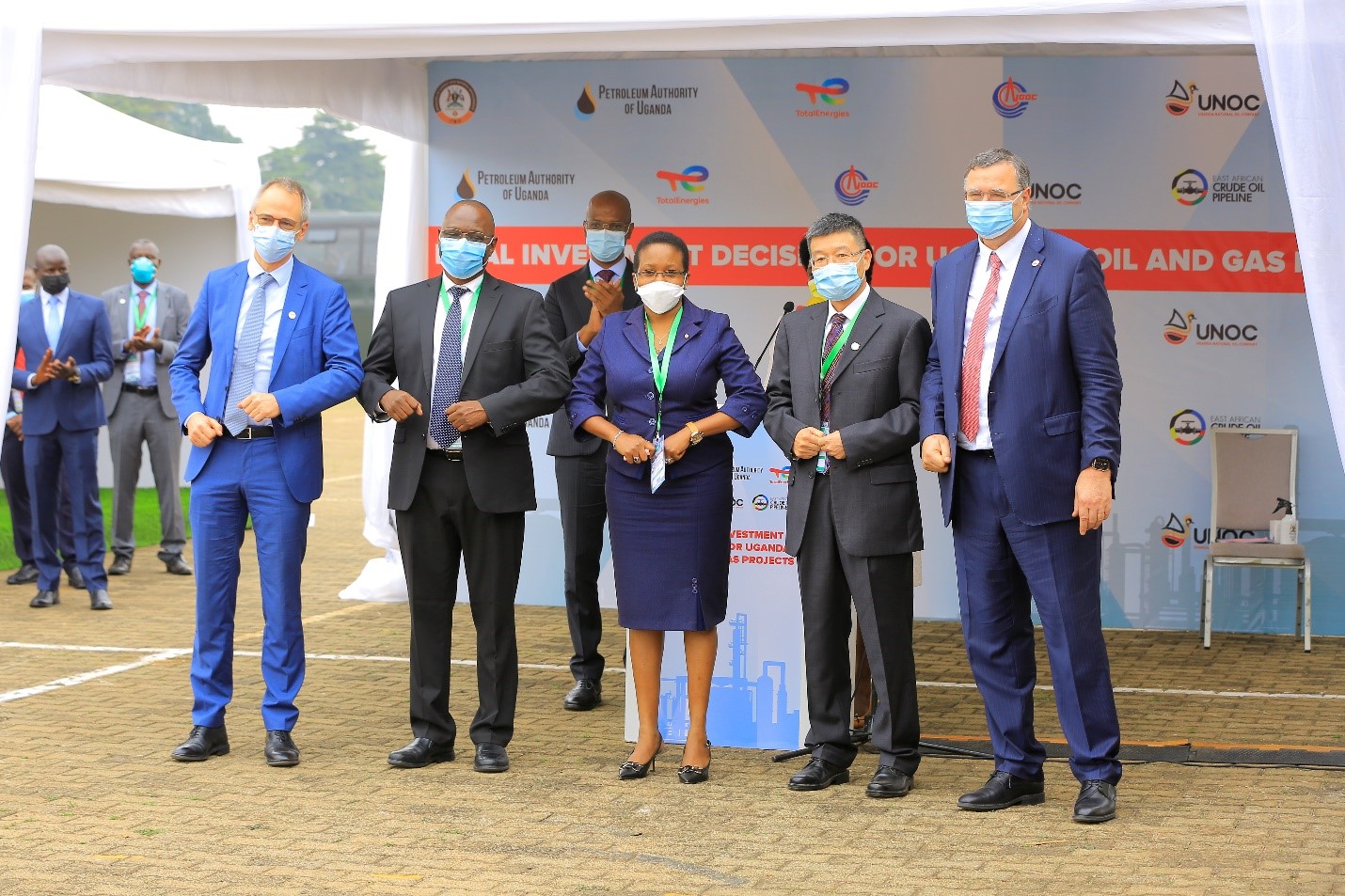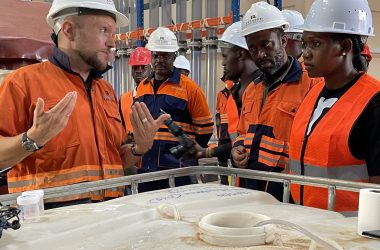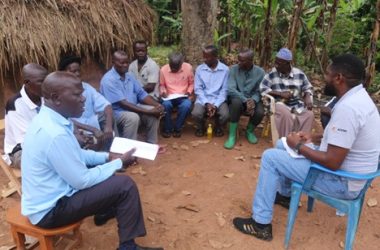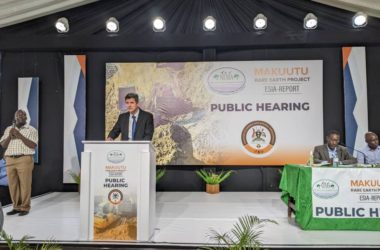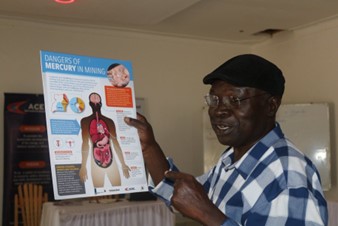The Final Investment Decision for the Lake Albert Oil Development Project was announced on February 1, 2022, symbolically kicking off the much awaited development phase of Uganda’s nascent oil & gas sector. As the sector gains tract there are mixed feelings among Ugandans as to how they can participate and be positively impacted. The National Content team of TotalEnergies EP Uganda, the major player in this Project, shares some key insights with Plexii on a range of issues regarding local participation of Ugandans.
Congratulations on the historic moment of the Final Investment Decision (FID) announcement by the Joint Venture Partners (JVPs). Now that we have the FID in place, what next for Ugandans in regard to national content? How do we proceed?
Following the announcement of the Final Investment Decision, the project will fully enter the construction phase and the firm award of all main contracts on Tilenga and EACOP will be signed within the month of February.
We are fully aware that these projects represent transformational opportunities for Uganda and Tanzania. We anticipate significant and enduring in-country value over the 4 years of construction and the 20+ years of planned production. The expectations on national content are very high and we are committed to be successful in this domain, in collaboration with the authorities and the private sector in both countries.
As a JVP and now main player in the sector you have certainly contributed much to Uganda’s oil and gas story. What are some of those key initiatives by TotalEnergies EP Uganda that speak to the country’s oil narrative?
In Uganda we have developed a national content strategy which aimed at maximizing the use of local manpower, goods, and services; as well as fostering capacity building, knowledge and technology transfer.
Employment of Ugandans: There is steady employment of Ugandans within our operations directly employed by the Company, by our contractors & sub-contractors. Averagely, over 94% of the Company’s employees, contractors and sub-contractors are Ugandan nationals and we continue to mobilize more staff to support our operations.
We have also ramped up recruitment activities which will be complemented by knowledge transfer from the experts within TotalEnergies that will be deployed from around the world to support the development of the project.
Use of local goods & services: More than 160 Ugandan companies are already directly engaged in our activities such as camp management, catering, medical, communication, security, civil works, manpower and training services, social and environmental services among others. More than USD 700 million is expected to be spent in Uganda.
Training & Capacity Building: Training of national staff is continuing to be done on an annual basis in technical, HSE (Health, Safety, Environment) and personnel development subjects. Where possible we offer opportunities for international exposure of national staff within other affiliates in the world, where we currently have 22 Ugandan staff.
We continue to execute a number of capacity building initiatives for various beneficiaries. These include supplier workshops, supplier development programs, skilling programs (350 welders, 25 QC inspectors and 160 heavy goods vehicle drivers trained by end of 2021), local and international scholarships, supporting the agriculture sector (ADP) etc. More initiatives are under development such as supplier HSE training, community supplier development and the industry enhancement centre.
As you can imagine local content is dominating the discourse in the oil and gas sector now that things are beginning to happen – contracting. What are those key points you can speak to regarding this as TotalEnergies EP Uganda?
Direct jobs will be generated by companies developing and supporting oil and gas projects development on site like well services, seismic studies, drilling, etc; whereas indirect jobs will be generated by companies supporting projects offsite like mechanical engineering, freight services and others.
Induced jobs which are both direct and indirect will be generated by the spending of oil and gas industry revenues once re-invested in sectors like catering, medical, hotel, banking, etc.
Various job qualifications from the arts and science disciplines will be needed, as well as casual labour that does not require formal training.
For skilled and semi-skilled job vacancies, adverts are placed in national and local papers, on our website and social media platforms and the community notice boards. All interested applicants are taken through a competitive and transparent recruitment exercise in accordance with applicable laws.
For unskilled jobs, priority is given to communities within the vicinity of our operations and to apply; interested persons must fill a form which upon completion must be signed off by the LC1 Chairperson, Women representative and Youth representative. This is to ensure that the candidates are from the area. These jobs are posted on respective community noticeboards at District and Sub-County headquarters and the candidates are selected through a ballot system.
The National Oil and Gas Talent Register was also established by the Petroleum Authority of Uganda (PAU) in February 2019 to increase the visibility of Ugandan nationals who are interested in working in the sector. At the end of 2021, the Register had a total of 5,941 registered people and 114 employers. A number of jobs are posted on the system by the different employers to provide opportunity for the competent Ugandans to take over the jobs. Ugandans who would like to work in the sector are encouraged to get onto the National Oil and Gas Talent Register for easy access and visibility of the jobs in the sector.
In regard to preparing Ugandans to participate meaningfully in the oil and gas sector, I notice many of the initiatives are youth-focused. Can you provide some statistics to measure you by in terms of empowering this demography?
Over US $2.5 million has so far been spent on technology transfer and capacity building initiatives with over 4000 beneficiaries empowered and skilled to prepare them to serve in the oil and gas sector and beyond.
These initiatives include: skilling programs such as certified welder training, Quality Control-NDT Inspector training, scaffolder training, and heavy goods vehicle driver training; supplier development workshops; local and international scholarships; supporting education institutions e.g., oil and gas related courses at Kyambogo University, Makerere University Business School and Makerere University under the Total Professeurs Associés (TPA) programme; supporting the agriculture sector, among others.
Experts, including your previous Country Head, have cautioned about getting the most out of national content. In regard to managing expectations, what guidance would you offer Ugandans intending to participate in the sector?
The ongoing development of the oil and gas projects is a once in a lifetime opportunity and many Ugandans are already involved in the activities. All stakeholders need to continue working collaboratively to ensure sustainable growth and national participation within the sector that will contribute to the overall development of the economy. Ugandans and Ugandan enterprises need to understand the requirements for participation and proactively seek the various job, business and training opportunities.

